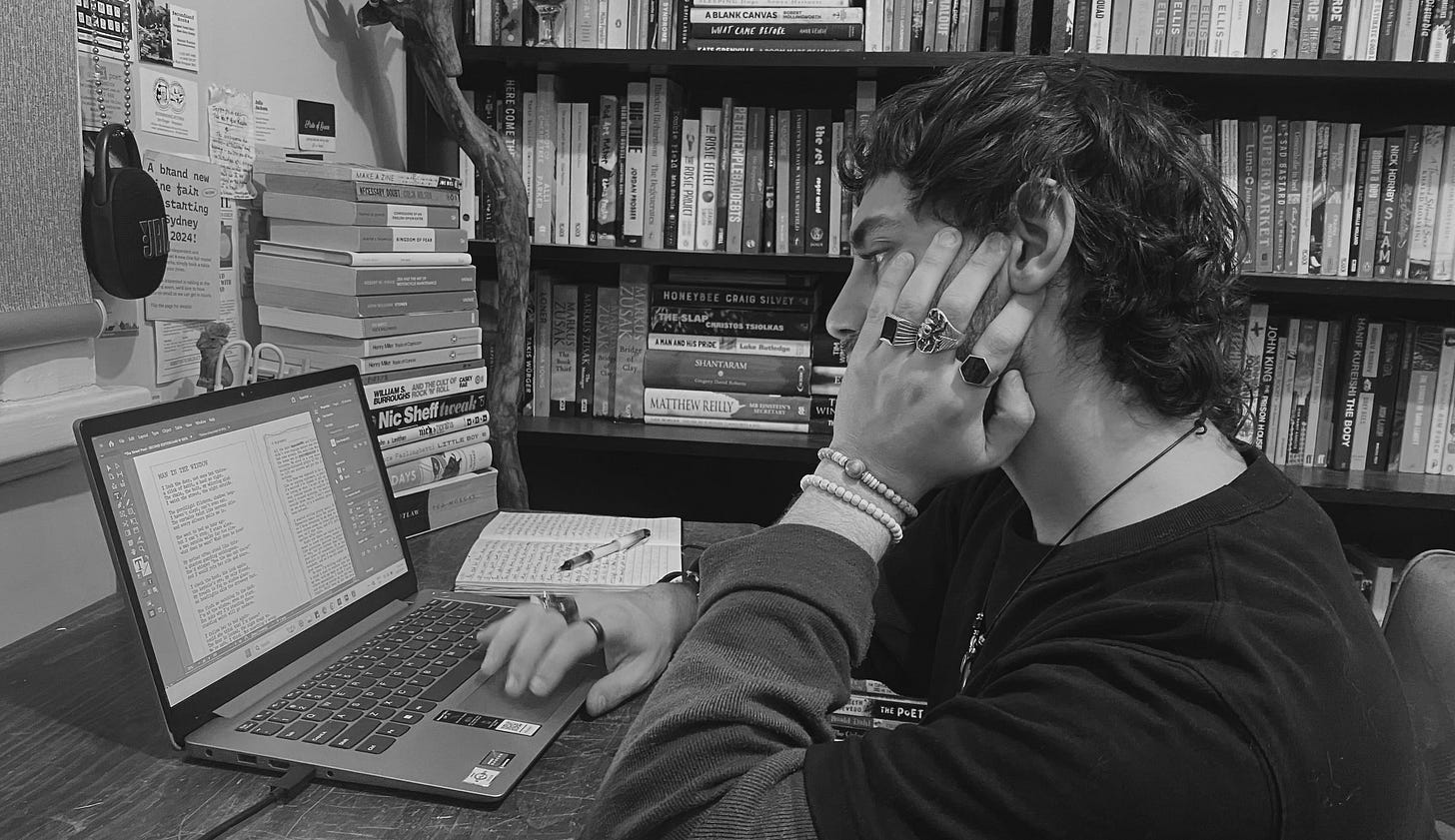doing it yourself: reflecting on the indie author life
DIY publishing is on the rise. More authors are choosing to self-publish their own novels. The tools are in our hands.
We are in the Age of the Rebirth of DIY. Authors today arguably have greater opportunities to oversee their own careers than those of the past, because the tools are more often in their hands.
When my poetry novel The Street Poet came out two years ago, the possibilities for indie authors were impressive. In just a short time, those possibilities have expanded well beyond what I could have imagined! Today there are countless publishing platforms to choose from, design software is accessible, marketing channels are wide and varied, and reaching global audiences is as simple as having a laptop or a phone …
… or is it?
Lori Lesko, an author who has self-published several novels, describes the doubled-edged sword of independent publishing: “The good news about self-publishing is you get to do everything yourself. The bad news about self-publishing is you get to do everything yourself.”1
Authors tend to simply enjoy writing. We enjoy it, it makes our lives a little better, and it keeps us busy. We want others to read our work, but we usually want it without all the bells and whistles of behind-the-scenes chaos. If only things were that easy. In 2025, authors are constantly trying new and emerging strategies for reaching readers—Tiktok, Substack, meet-and-greets, book festivals, and so on. The world is constantly changing, and yesterday’s most effective way to connect with audiences may not be the same as those of tomorrow.
There are all kinds of reasons a writer would choose the self-publishing path. For one, it’s a great solution for writers who are ready for print, but feel that traditional publishing is not accessible to them. Or perhaps you’re writing into a specific niche that isn’t currently trending in the mainstream market, or maybe you would prefer to have larger control over distribution and royalties. Or maybe it’s not about the money, money, money at all. Maybe you just want to be an author without publishers and slush piles, or gatekeepers blowing their horns and scaring you off from ever writing another word.
There’s good news for anyone thinking about going down the self-publishing route.
Perceptions about self-publishing are shifting. I work in a bookstore, and there has been a greater push by readers to see books by independent authors in stores. Readers are coming out in droves to support the indie authors they love. Customers are willing to special order these books in, and when enough people request them, a store is more likely to order more of them for stock. The gulf of difference between traditional publishing and self-publishing is narrowing, and readers’ attitudes toward indie publishing have changed.
The latest Big Indie Author Data Drop report by the Alliance of Independent Authors (ALLi) indicates that self-published authors are actually out-earning most authors in traditional publishing—a whole 34% increase from 2022.2
And more good news: a larger number of authors are choosing self-publishing from the beginning, before even approaching agents or publishers. A study by Kingston University, surveying 800 authors, found that 86% of self-published authors agreed they would recommend self-publishing to other authors.3
For every success story, there are thousands more tales about authors giving up on self-publishing after the tiresome experience of doing it once or twice, never to write another novel again. And sure, not everybody wants to keep writing novels! After all, there is no single definition of success for indie authors, no blueprint; just blank pages and the willingness to keep going even when it gets messy, and it always gets messy. Yet it seems to me, to put it bluntly: this difficult process is what weeds out those who are not ready to do the work to continue being a novelist from those who are.
And now … the truth about DIY publishing …

DIY is not always the easiest option. More often than not, it’s the more difficult one.
In my experience, doing everything yourself is actually incredibly overwhelming. I’ve come to realise that being an independently published author is well and truly a commitment. It means dedicating time and money toward this endeavour, as one would with a side-hustle or an investment. It may be easier to manage your own publications than ever before, but it sure isn’t as simple as writing the novel, printing it, and then kicking back and waiting for the money to roll in from sales. On the contrary—the real work begins once the novel has been published, and it’s more like trying to squeeze blood from stone or fell trees with your fists.
Self-publishing is a lot of work, especially when you’re up against authors who have agent representation, established readerships and publishing teams backing them. It gets tedious, and it’s not going to be for everyone. But the tools and opportunity are there, if you’re willing to give the task your all.
The odds may be against you, but the holy concoction of ample time, hard work, marketing, budgeting, community involvement and, most importantly, passion, can produce something wonderful. Something to be proud of.







Great write!! Totally agree about it being an overwhelming experience. But there’s something rewarding in achieving it at the end and working it out on your own.